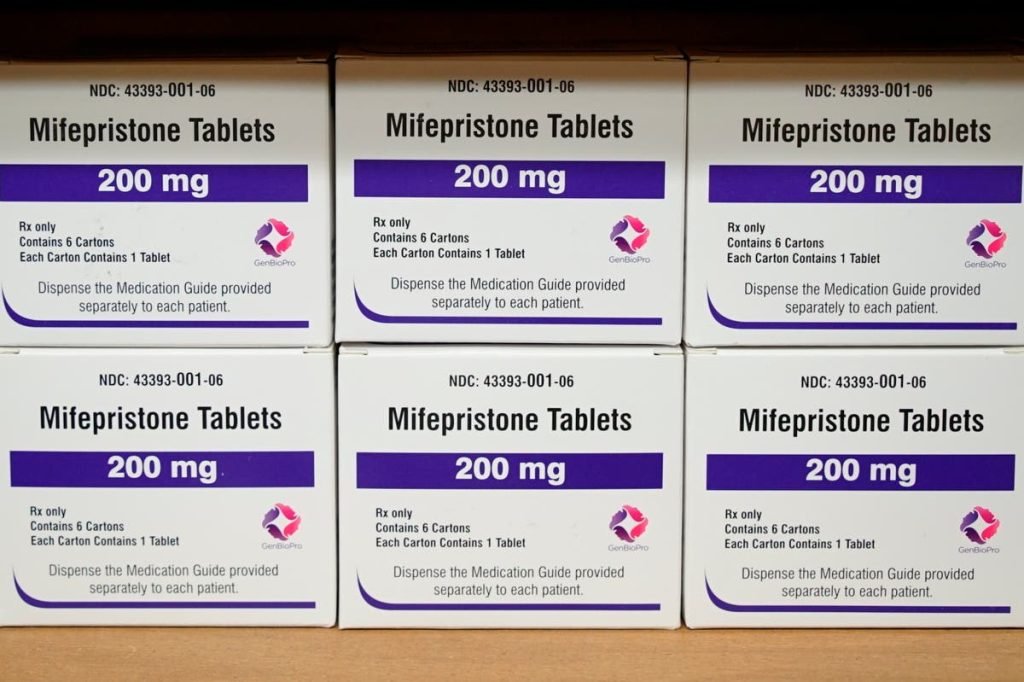
Women have been told not to panic as the website of the leading mail-order abortion pill provider in the US has crashed in the hours after Donald Trump’s election victory as Americans rushed to stock up on medication.
Dr Rebecca Gomperts, founder of Aid Access, told The Independent the platform received 10,000 requests for medication for terminations in the 24 hours after Trump’s win – almost 15 times more than the 600 or so requests they tend to get per day.
The leading abortion rights activist said soaring demand caused their website to crash for two hours last night, but it is now back up and running again.
Americans are fearful that Mr Trump could implement a national abortion ban after he is sworn into office for a second time in January. The president-elect suggested he would support a national ban on terminations at around 15 weeks of pregnancy in March, but also said he believed states should decide their own abortion policies, during the end of his recent campaign.
Dr Gomperts said: “People are stockpiling abortion pills. They are wanting to have the pills at hand in case anything happens and they are taken off the market. The website crashed because it couldn’t keep up.
“The requests are coming in. I can see when people are submitting an application. People are really anxious.”
The doctor explained she had been in Paris with her American physicians and support staff when the presidential results came in on Wednesday – saying that they put a “resilience plan” in place and went through various different scenarios that could emerge.
There are enough abortion pills to provide for anyone who wants but people are very anxious and afraid that they won’t be available anymore
Dr Rebecca Gomperts
Her organisation already has a system in place whereby doctors in states where abortion is legal prescribe and post abortion pills to patients living in states where terminations are illegal.
“We said we will continue working, we will do what we do, nothing will stop us,” Dr Gomperts said. “Abortion is the most important form of healthcare for women.”
Data from the Guttmacher Institute shows medical abortions in the formal US healthcare system have surged from 53 per cent of all abortions in 2020 to 63 per cent of all terminations last year.

“It is important that people don’t panic,” Dr Gomperts said. “There are enough abortion pills to provide for anyone who wants but people are very anxious and afraid that they won’t be available anymore.”
Dr Gomperts, who is based in Amsterdam, said even if the Trump administration were to enact a national abortion ban, people would still be able to get abortion pills through Aid Access and other organisations.
Used by millions of people for over 30 years, decades of research and experience has shown abortion pills are safe and effective.
Sarah Shaw
“I understand there are millions and millions of abortion pills being made every year in India and China,” she added. “It is going to continue no matter what. It is the revolution of the pills.”
Millions of women in America lost their legal right to terminate a pregnancy after the US Supreme Court overturned Roe v Wade – the landmark decision that legalised abortion nationwide in 1973 – in June 2022.
Mr Trump’s arrival into the White House in January 2017 emboldened anti-abortion activists – with the former US president previously appointing the Supreme Court justices who went on to reverse Roe vs Wade.
His recent win has sparked fears that abortion and wider reproductive rights could be at further risk once Mr Trump re-enters the White House in January.
Sarah Shaw, associate director of advocacy for leading global abortion and contraception provider, MSI Reproductive Choices, said: “Used by millions of people for over 30 years, decades of research and experience has shown abortion pills are safe and effective.
“But legal restrictions can limit access, particularly for adolescents and those living in poverty, remote communities and crisis settings. Our teams working in countries with restricted abortion laws see the horrific lengths women go to when they are denied access to safe care.
“Following the overturning of Roe v Wade, which struck down the constitutional right to abortion, American women are already having to cross state boundaries and even across the border to our clinics in Cancun and Mexico City where our teams stand ready to support. Removing this lifeline would be catastrophic.”








